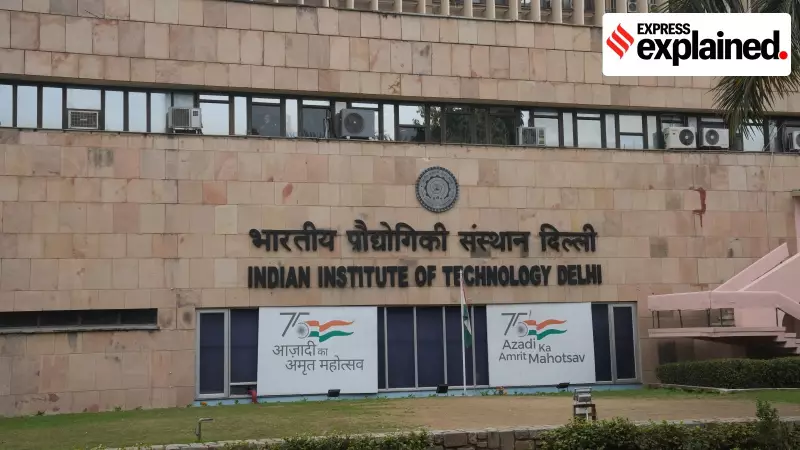
The Growing Rebellion Against Global University Rankings
In a significant movement shaking the foundation of global higher education assessment, prestigious universities worldwide are increasingly withdrawing from international ranking systems. The latest institution to join this protest is France's renowned Sorbonne University, which announced its withdrawal from the Times Higher Education World University Rankings in September 2025.
This development follows a similar stance taken by India's premier engineering institutions. In 2020, the older IITs including Delhi, Kharagpur, Madras, Kanpur, Bombay and Roorkee declared they would not participate in THE rankings, citing serious concerns about transparency and methodology.
Understanding the Global Ranking Systems
Three major organizations dominate the global higher education ranking landscape, each with distinct methodologies and approaches to evaluating universities worldwide.
QS World University Rankings, produced by London-based QS Quacquarelli Symonds, evaluates institutions based on 10 indicators. The most significant factor is academic reputation, carrying 30% weightage, followed by citations per faculty at 20% and employer reputation at 15%. Other metrics include employment outcomes, faculty-student ratio, and various internationalization indicators. For the 2026 edition, QS ranked over 1,500 institutions, with IIT Delhi achieving the highest position among Indian institutions at rank 123.
Times Higher Education World University Rankings employs a more detailed framework with 17 performance indicators. Research-related metrics collectively contribute approximately 59% to the overall score, with research reputation alone carrying 18% weightage. Teaching reputation and citation impact each account for 15%. THE's 2026 edition featured more than 2,100 institutions, requiring universities to publish at least 1,000 papers in Scopus-indexed journals to qualify for ranking.
Shanghai Ranking or Academic Ranking of World Universities, established in 2003, uses six primary indicators with significant emphasis on research excellence. The methodology assigns 20% weightage to Nobel Prize winners among staff and 10% to Fields Medalists among alumni, while highly cited researchers contribute another 20%. The 2025 edition ranked 1,000 institutions, with Indian Institute of Science and Vellore Institute of Technology placed in the 501-600 band.
Core Concerns Driving the Boycott Movement
Sorbonne University, which holds impressive positions across all major rankings (72 in QS 2026, 76 in THE 2026, and 43 in Shanghai Ranking 2025), articulated several fundamental concerns about the ranking systems.
The institution criticized the methodology's inherent bias toward English-language journals, which disproportionately advantages certain disciplines while disadvantaging humanities and social sciences that utilize more varied publication methods and languages. The university described rankings as black boxes that operate as closed systems where data isn't shared and methodology remains only partially disclosed.
Professor V Ramgopal Rao, former Director of IIT Delhi and current Group Vice Chancellor of BITS Pilani, explained the Indian institutions' perspective: There was no clarity, it was mainly a transparency issue on the metrics. The challenges with the rankings are of reputation and perception scores. Those are black boxes.
Additional concerns raised by academic leaders include:
- Questionable practices like institutional self-citations where faculty members are encouraged to cite colleagues' work
- Inadequate handling of papers with excessive authors (over 200) and improper accounting of paper retractions
- Over-reliance on subscription-based tools like Scopus and Web of Science that limit accessibility
- Inability to capture institutional diversity and comprehensive educational quality through numerical scores
The boycott movement extends beyond Indian and French institutions. Utrecht University in the Netherlands announced its withdrawal from THE rankings in 2023, stating that rankings emphasize competition over collaboration and use highly questionable data and methods.
Ranking Organizations Respond to Criticism
In response to the growing criticism, THE representatives have defended their methodology while acknowledging institutions' right to withdraw participation.
A THE spokesperson emphasized that their ranking utilizes independent data including nearly 1.5 million votes from over 100,000 academics in their annual reputation survey and analyzes approximately 175 million citations from 18.7 million research publications.
Phil Baty, Chief Global Affairs Officer at THE rankings, addressed the Indian context specifically: We are clear that India could – and should – be the best represented nation in the world rankings, if all eligible universities in the nation stepped forward and shared basic institutional data.
Despite the boycott by several IITs, THE's 2026 rankings featured 163 Indian institutions that submitted data, with 128 ultimately ranked, making India the second-best represented country after the United States.
The ongoing tension between ranking organizations and educational institutions highlights a fundamental debate about how to measure educational excellence and whether numerical rankings can adequately represent the complex, multifaceted nature of higher education institutions dedicated to teaching, research, and societal contribution.





